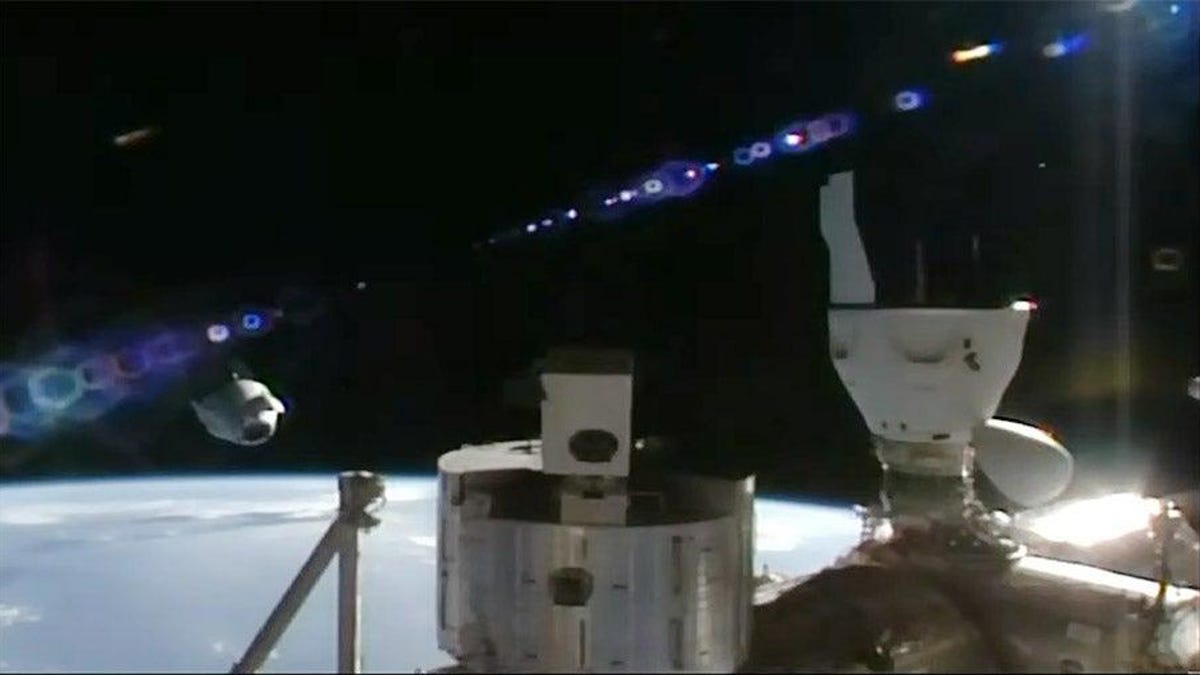It’s raining space junk. Just one month after NASA admitted that a piece of trash tossed from the International Space Station (ISS) crash-landed through a home in Florida, a massive piece of space debris ended up on a farm in Canada.
A farmer in Saskatchewan, Canada discovered an 88-pound (40 kilograms) heavy piece of charred metal in his fields, and suspected it was space debris from the multiple layers of burned composite fibres and webbing, CBC reported. “But I had no idea. I don’t build spaceships for a living. I farm,” Barry Sawchuk told CBC.
Local reports of the possible space junk reached a group of astronomy professors, who traced the burned fragments to the reentry of a SpaceX Dragon spacecraft in February. The SpaceX Dragon spacecraft undocked from the ISS over the Pacific Ocean, west of Ecuador on February 7, and returned a crew of astronauts to Earth following a splashdown off the coast of Daytona, Florida, on February 9.
The spacecraft is made up of a reusable crew capsule and an expendable trunk module, which is jettisoned prior to Dragon’s reentry through Earth’s atmosphere and is left to reenter on its own. The trunk module that was discarded prior to the February reentry of the Axiom-3 mission crew may be what landed on the Canadian farm.
This isn’t the first time suspected SpaceX debris ends up in a populated place. In July 2022, another charred piece of metal ended up on farmland in Australia, and it was also suspected to have come from SpaceX’s Dragon trunk module.
As the space industry continues to grow, so do the risks of getting hit by a crashing piece of spacecraft. On average, 200 to 400 human-built objects reenter through Earth’s atmosphere every year, and space agencies commonly accept a 1 in 10,000 probability threshold for the casualty risk of a single uncontrolled reentry, according to ESA.
Earlier in April, NASA admitted that a piece from a pallet containing old batteries that was tossed from the ISS in March 2021 crashed through a Florida home. The space agency confiscated the cylinder-shaped piece for analysis, but it’s not clear whether SpaceX will step up to do the same for fear of liability.
Canadian farmer Sawchuk doesn’t seem too concerned about it. He plans on selling the piece of space junk and donating some of the profit to help build a hockey rink in Saskatchewan, Sawchuk told CBC. That’s one way to deal with it.
For more spaceflight in your life, follow us on X and bookmark Gizmodo’s dedicated Spaceflight page.

